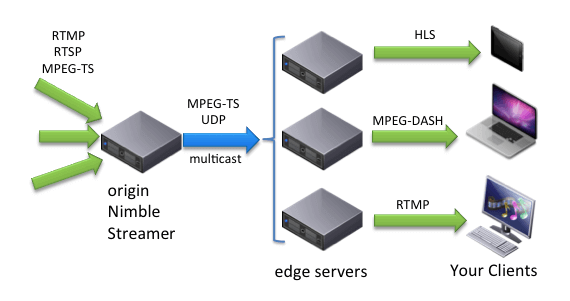Understanding the Difference Between IPTV HLS and MPEG-TS

Which One Should You Choose?
HLS is ideal if you're targeting a wide range of devices and want adaptive streaming for smooth playback, even on lower-speed internet connections. However, if your primary focus is on real-time broadcasting with minimal delay, MPEG-TS is the way to go.
Understanding the Difference Between IPTV HLS and MPEG-TS
When it comes to streaming IPTV (Internet Protocol Television), two main protocols are often compared: HLS (HTTP Live Streaming) and MPEG-TS (MPEG Transport Stream). Let's break down the key differences between these two protocols, and help you understand which one might be better for your needs.
1. What is HLS (HTTP Live Streaming)?
HLS is a protocol developed by Apple for delivering live and on-demand video to various devices. It works by breaking down the video into small chunks of 10-second segments. These segments are downloaded over HTTP and played in sequence, ensuring a continuous stream.
- ✔️ Compatibility: HLS is widely supported across most devices, including smartphones, tablets, smart TVs, and web browsers.
- ✔️ Adaptive Bitrate Streaming: It adjusts video quality based on the user's internet speed, providing smooth playback even on slower connections.
- ✔️ Latency: HLS has higher latency (10-30 seconds), which may result in delays when watching live events.
2. What is MPEG-TS (MPEG Transport Stream)?
MPEG-TS is a standard used for broadcasting and streaming live TV. It encapsulates audio, video, and metadata in a constant stream. This protocol is common in cable, satellite, and IPTV services that require real-time broadcasting.
- ✔️ Compatibility: Primarily used in set-top boxes, satellite receivers, and professional broadcasting equipment.
- ✔️ Low Latency: MPEG-TS offers much lower latency (around 2-5 seconds), making it ideal for live events and real-time applications.
- ✔️ Reliability: It’s designed for stable, continuous transmission over a dedicated network.
3. Comparison Table: HLS vs. MPEG-TS
| Feature | HLS | MPEG-TS |
|---|---|---|
| Compatibility | Works on most devices and browsers | Best for dedicated hardware |
| Latency | 10-30 seconds | 2-5 seconds |
| Bitrate Adaptation | Adaptive to internet speed | Fixed bitrate |
| Use Case | Live & on-demand streaming | Broadcasting & live TV |